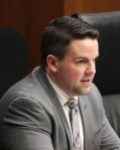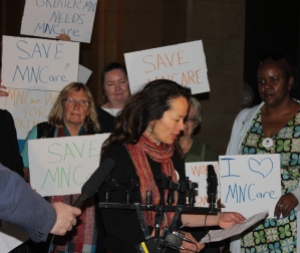Retaliation is a real issue in nursing
Nurses throughout Minnesota know of instances of employers intimidating and retaliating against staff for a wide variety reasons, like reporting unsafe staffing, speaking up when they disagree with a program or pilot, reporting managerial unethical or illegal behavior, engaging in union activities, and many more.
These types of incidents can cause managers and administration some headaches, but they are all part of the ebb and flow of the employer-employee relationship. Unless, of course, the employee is punished for legal and ethical actions.
Unfortunately, retaliation in the workplace is all too commonplace – and not just in hospitals.
For nurses, the opportunities for retaliation are higher than in many other fields.
… Read more about: Retaliation is a real issue in nursing »





